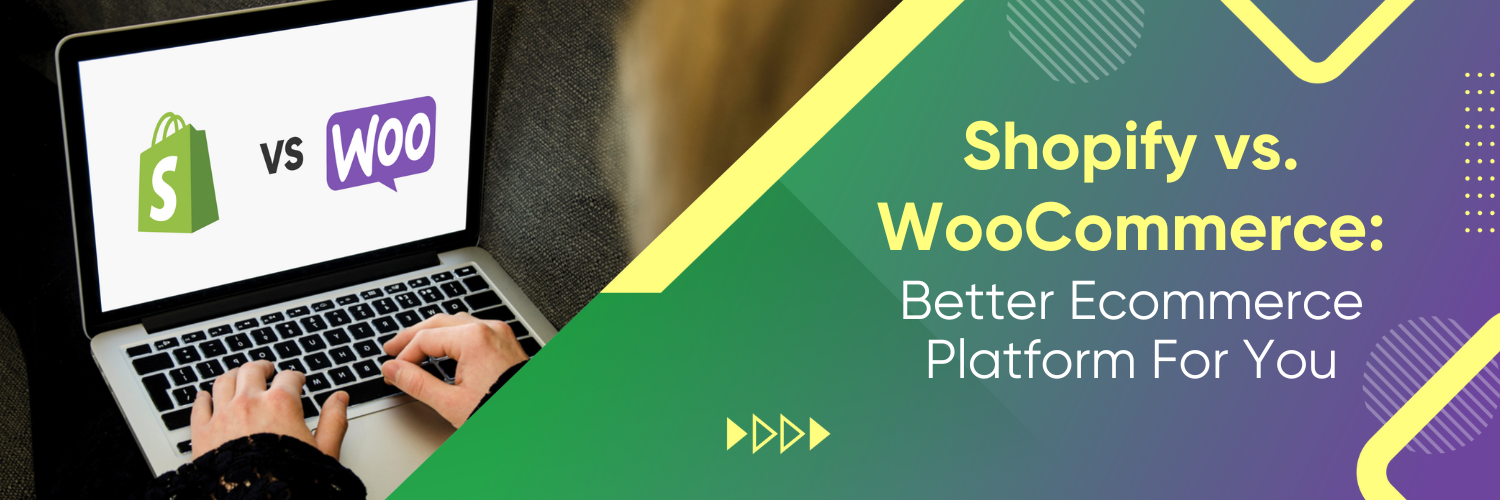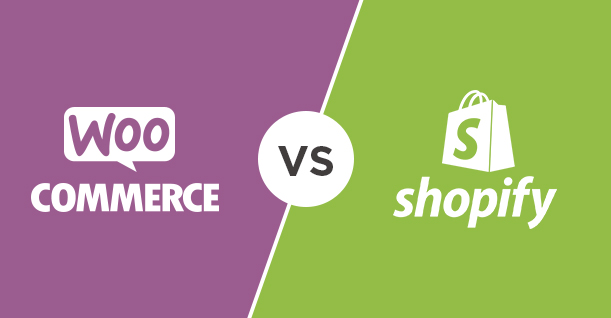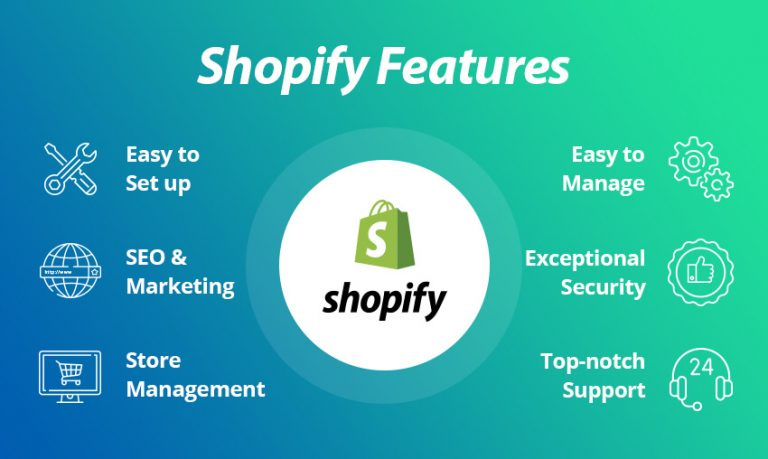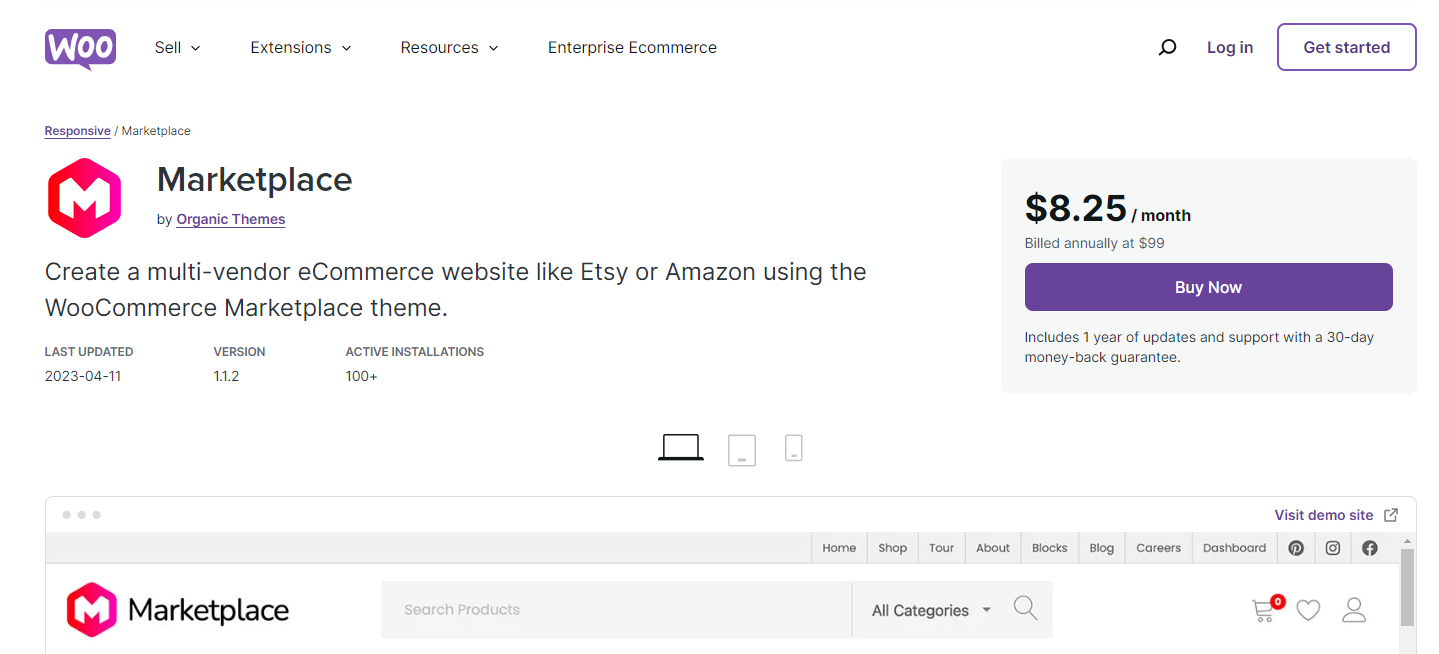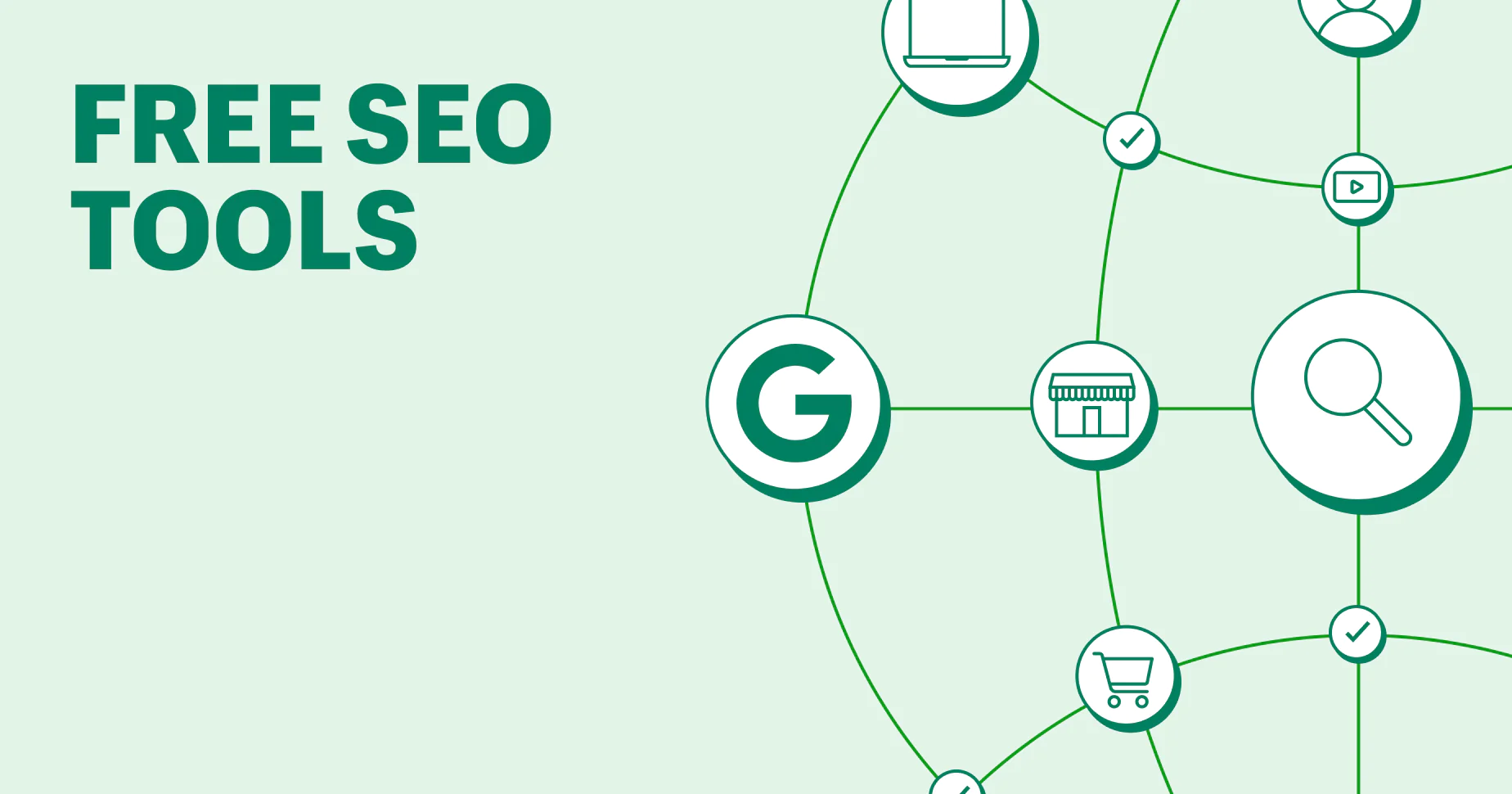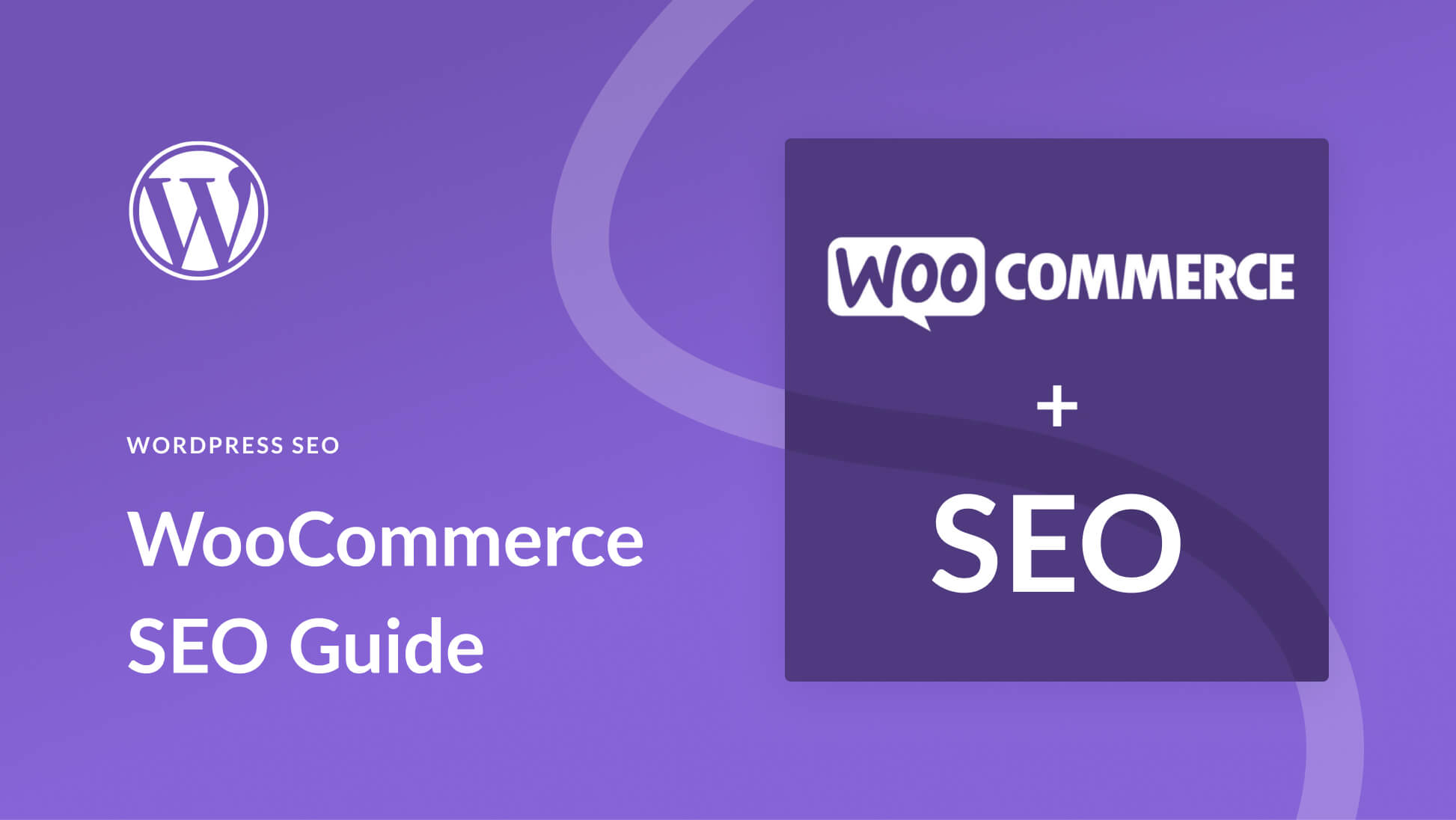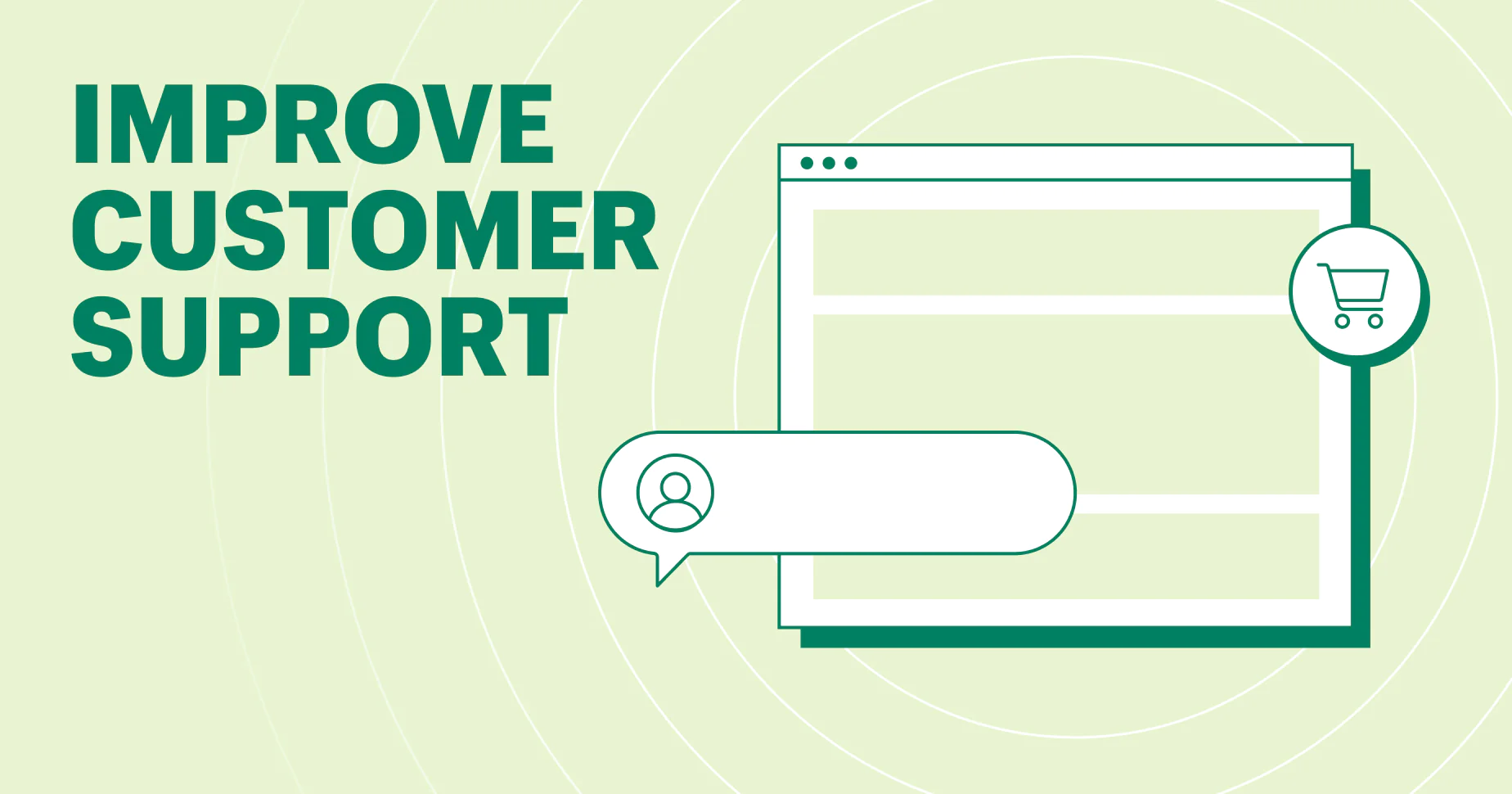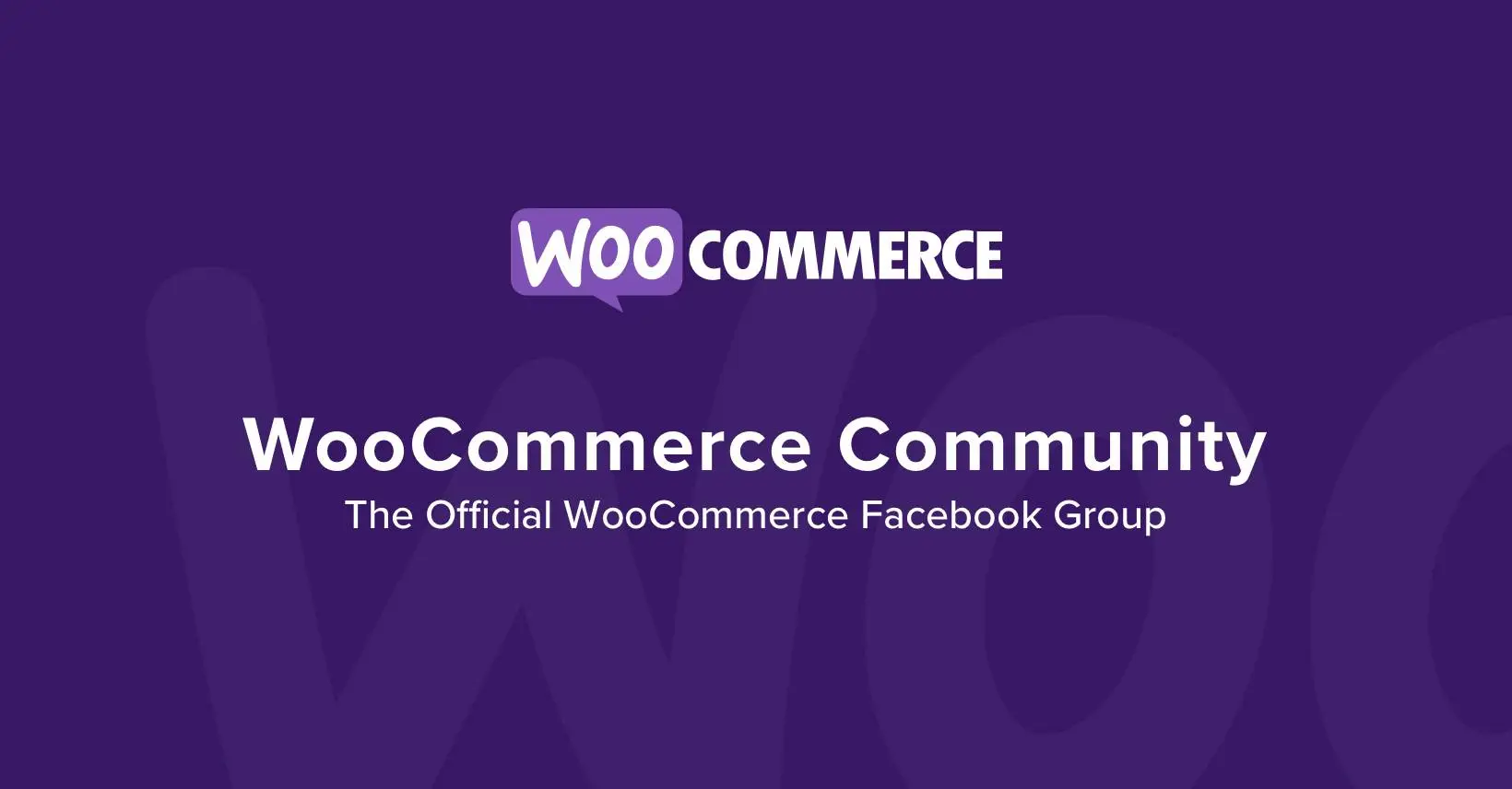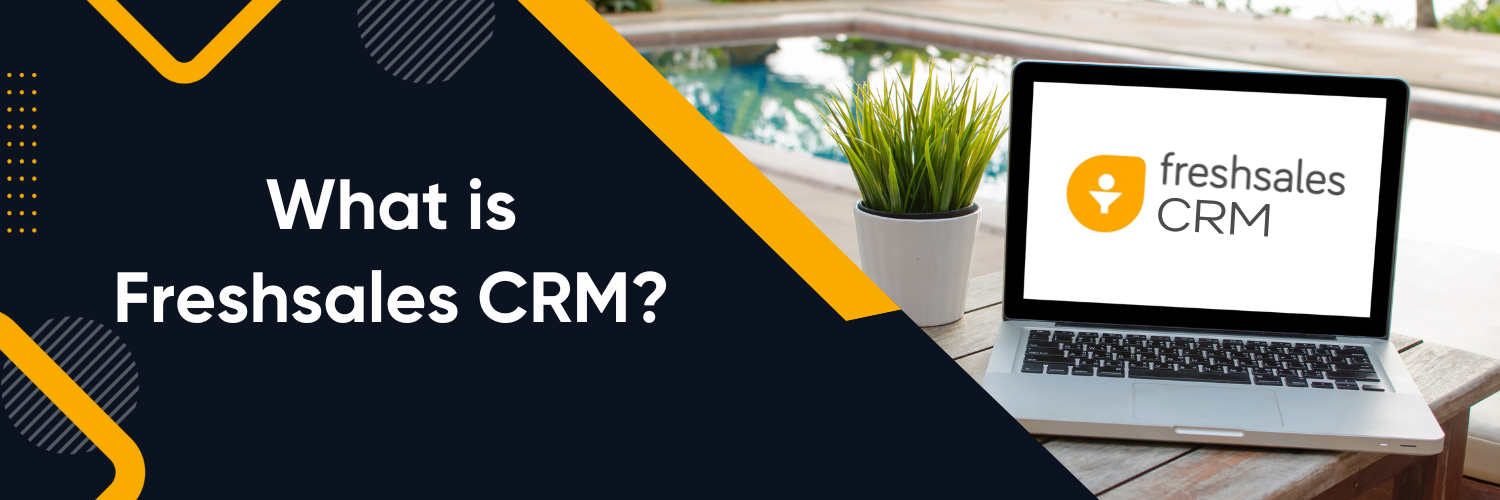Shopify and WooCommerce
Launching an online store is an exciting venture, but it comes with critical decisions, none more significant than choosing your e-commerce platform. With numerous options available, two names consistently stand out: Shopify and WooCommerce. These platforms empower countless businesses to establish and grow their online presence.
Understanding Your Ecommerce Needs
Assessing Your Business Goals
Your business goals are the foundation upon which your choice of e-commerce platform should be built. Here’s how to evaluate and align your goals with the right platform:
- Scalability: Consider the growth potential of your business. If you aspire to expand rapidly and anticipate high traffic and sales volume, scalability should be a top priority. Shopify’s hosted solution is known for its ability to handle increased loads without significant technical expertise. WooCommerce, while scalable, may require more management of server resources.
- Product Range: Assess the type and range of products you plan to sell. If you have a smaller product catalogue or are just starting, Shopify’s simplicity can be advantageous. WooCommerce’s flexibility is well-suited for businesses with extensive product ranges or unique product configurations.
- Target Audience: Understand your target audience and their preferences. Are you catering to a niche market with specific needs, or do you have a broader audience? Different platforms may offer features and designs better suited to different customer demographics.
- Sales Strategy: Consider your sales strategy. Are you primarily selling physical products, digital goods, or a combination of both? This can influence your choice, as some e-commerce platforms are better optimized for specific types of products.
- Global Reach: If your business has a global reach, think about your international requirements. Both Shopify and WooCommerce offer multi-currency and multi-language support, but Shopify’s international features are often more accessible to beginners.
Budget Considerations
Your budget plays a significant role in your platform selection. Here’s a closer look at the budgetary aspects of Shopify and WooCommerce:
- Shopify Costs: Shopify operates on a subscription-based model. You’ll pay a monthly fee, which includes hosting and essential features. Additionally, Shopify charges transaction fees for each sale, which can vary depending on your pricing plan. While it provides an all-in-one solution, these ongoing costs can add up.
- WooCommerce Costs: WooCommerce is an open-source platform, that offers more control over your expenses. However, it’s important to note that you’ll need to cover additional expenses like web hosting, domain registration, security measures, and potentially premium plugins or themes. While it can be cost-effective, it requires careful budget management.
- Resource Allocation: Consider the allocation of resources in your budget. Are you willing to invest in a monthly subscription fee for the convenience of an all-in-one platform, or do you prefer the flexibility of controlling hosting and plugin costs with WooCommerce?
- Technical Expertise: Think about your technical expertise or the availability of technical support. WooCommerce, as a self-hosted solution, may require more technical know-how or assistance, which can be a factor in your budget if you need to hire experts.
Ease of Use and Setup
Shopify’s User-Friendly Approach
Shopify comes with far more e-commerce tools in-built. Sign up with Basic Shopify and you’ll get impressive features to help you sell, including:
- Intuitive Interface: Shopify’s user interface is designed with simplicity in mind. It’s easy to navigate, and the dashboard provides a clear overview of your store’s performance, orders, and inventory. Managing your products, customers, and orders is straightforward.
- Hosted Solution: One of Shopify’s key advantages is that it’s a hosted solution. This means you won’t have to worry about technical aspects like server configurations, security updates, or performance optimization. Shopify takes care of the backend, allowing you to focus on building and growing your business.
- App Integration: Shopify offers an extensive app store where you can find a wide range of add-ons and integrations to enhance your store’s functionality. These apps are designed to be user-friendly and often come with detailed setup instructions.
- Mobile-Friendly: Shopify’s themes are responsive and mobile-friendly by default, ensuring that your online store looks and functions well on various devices, including smartphones and tablets.
- Customer Support: Shopify provides reliable customer support through various channels, including email, phone, and live chat. If you encounter any issues or have questions during setup, assistance is readily available.
WooCommerce’s Customization Flexibility
Key WooCommerce Features
- Self-Hosted: WooCommerce is a plugin for WordPress, and it’s self-hosted. This means you have complete control over your hosting environment and can choose a hosting provider that aligns with your needs and budget. However, it also means you’ll need to handle server setup and maintenance, which can be more technically demanding.
- Design Freedom: WooCommerce provides unparalleled design freedom. You can use any WordPress theme or create a custom design from scratch. This flexibility is ideal for businesses with unique branding or specific design requirements.
- Plugin Extensibility: WooCommerce’s strength lies in its vast plugin ecosystem. You can extend your store’s functionality by choosing from thousands of plugins available in the WordPress repository and third-party marketplaces. This level of customization is perfect for tailoring your store to your specific needs.
- Learning Curve: Due to its flexibility, WooCommerce may have a steeper learning curve, especially for those new to WordPress or e-commerce. However, the trade-off is the ability to create a highly customized and unique online store.
- Technical Support: While WooCommerce has a supportive community, its official customer support is more limited compared to Shopify. You may need to rely on forums, and documentation, or hire developers for more complex issues.
Features and Functionality
The features and functionality of an e-commerce platform play a vital role in the success and efficiency of your online store. In this section, we’ll examine the built-in features of Shopify and the extensibility of WooCommerce through plugins, helping you understand how these platforms can meet your business needs.
Shopify’s Built-in Features
Shopify has firmly established itself as one of the leading platforms for e-commerce entrepreneurs, thanks in large part to its plethora of built-in features. These features are not just add-ons; they play a crucial role in the holistic development and management of an online store.
1. Secure Hosting
At the heart of any online business is its hosting solution. Shopify understands this implicitly, which is why it offers secure and dependable hosting to all its users. This ensures that your online shop is always available, regardless of the number of visitors. Downtime is not just an inconvenience; it can erode trust, which can be fatal for a budding e-commerce venture. Shopify’s reliable hosting is designed to prevent such pitfalls.
2. Payment Processing
Seamless and secure payment processing is the backbone of every successful online store. Shopify’s integration with an array of payment gateways means business owners can cater to a diverse customer base with varied payment preferences. Moreover, Shopify goes above and beyond to make sure every transaction is secure, shielding sensitive customer data from potential threats.
3. Inventory Management
The flexibility and simplicity of Shopify’s inventory management system is a boon for e-commerce owners. Not only can you effortlessly add, edit, and organize products, but the platform also lets you monitor stock levels. The automatic stock notification feature ensures you’re never caught off guard by diminishing inventory.
4. Mobile Responsiveness
In today’s digital age, mobile responsiveness is non-negotiable. Shopify acknowledges this by offering themes that are fully responsive. Whether a customer is shopping from a phone, tablet, or desktop, Shopify guarantees a seamless, user-friendly experience.
5. Performance and Reliability
Slow loading times or frequent site crashes can deter potential customers. Shopify, with its emphasis on performance and reliability, guarantees rapid page loads and virtually non-existent downtime. Such factors not only enhance user experience but can directly influence sales figures.
6. Security
Trust is the currency of e-commerce. Recognizing this, Shopify has instituted a myriad of security measures. SSL certificates, regular security patches, and fraud analysis are just some of the tools Shopify deploys to ensure your business and your customers are always protected.
7. App Integration
The Shopify App Store is a treasure trove for e-commerce entrepreneurs. Whether you need tools for marketing, SEO, customer relations, or analytics, you’ll find a suitable app. These integrations allow business owners to customize and extend their store’s functionality, adapting to evolving needs and market trends.
8. Abandoned Cart Recovery
It’s not uncommon for potential customers to abandon their shopping carts. Shopify’s abandoned cart recovery tool is a nifty feature that allows store owners to rekindle interest in these individuals, offering a second chance to convert them into sales.
In essence, Shopify’s built-in features reflect a profound understanding of the e-commerce landscape. By providing business owners with these robust tools, Shopify ensures they have everything they need to succeed in the competitive online marketplace.
WooCommerce’s Plugin Marketplace
WooCommerce’s strength lies in its extensibility through plugins. It provides a solid foundation for e-commerce, and you can enhance and customize your store by choosing from thousands of available plugins.
1. Customization: WooCommerce’s plugin marketplace offers customization options for nearly every aspect of your online store. Whether you need advanced product variations, subscription services, or complex pricing rules, there’s likely a plugin available to meet your needs.
2. Payment Gateways: WooCommerce supports a wide range of payment gateways, giving you flexibility in how you accept payments. You can choose from popular gateways like PayPal, Stripe, and Square, as well as region-specific options.
3. Shipping Options: With WooCommerce plugins, you can customize shipping options and calculate shipping costs based on various factors such as location, weight, or shipping class. This flexibility is crucial for managing different shipping scenarios.
4. SEO and Marketing: WooCommerce offers plugins to enhance your SEO efforts and marketing strategies. You can optimize product pages, manage metadata, and integrate with various marketing tools to boost your online presence.
5. Product Management: WooCommerce’s plugins extend product management capabilities. You can create product bundles, implement product reviews, and set up product recommendations to improve the customer shopping experience.
6. Analytics and Reporting: Access to detailed analytics is crucial for making informed decisions. WooCommerce plugins provide comprehensive reporting tools to track sales, customer behaviour, and inventory levels.
7. Integration with Third-party Services: WooCommerce can integrate with various third-party services and APIs, allowing you to connect your store to CRM systems, email marketing platforms, and other business tools.
8. Customer Loyalty and Retention: You can implement customer loyalty programs, discounts, and subscription services through WooCommerce plugins to encourage repeat business and customer retention.
Shopify vs WooCommerce
Feature/Aspect | Shopify | WooCommerce |
| Ease of Use | User-friendly with an intuitive interface. | Requires more technical expertise and setup. |
| Hosting & Maintenance | Hosted solution; minimal maintenance. | Self-hosted; requires server management. |
| Cost Structure | Monthly subscription fee + transaction costs. | Open-source (free), but additional expenses. |
| Customization | Limited customization compared to WooCommerce. | Highly customizable with thousands of plugins. |
| Design & Themes | Offers a range of themes, both free and paid. | Allows full design freedom using WordPress themes. |
| Features & Functionality | Comprehensive built-in features. | Extensible through plugins for specific needs. |
| SEO & Marketing | Built-in SEO tools and integrations. | Customizable SEO with a wide range of plugins. |
| Support & Resources | Reliable customer support and resources. | Reliable customer support and resources. |
| Scalability | Scalable, but some limits are based on the pricing plan. | Highly scalable with the right hosting environment. |
| Payment Gateways | Supports various payment gateways. | Supports a wide range of payment gateways. |
| Security | Strong security measures are in place. | Security depends on hosting and plugin choices. |
| Mobile Responsiveness | Mobile-friendly themes are available. | Mobile-responsive themes are widely available. |
| Inventory Management | Built-in inventory management tools. | Inventory management plugins are available. |
| Third-party Integrations | Extensive app store for integrations. | Integrates with third-party services through plugins. |
SEO and Marketing
Shopify’s SEO and Marketing Tools
Shopify places a strong emphasis on helping you succeed in the digital marketing realm. It offers built-in SEO features, such as customizable meta tags and automatic sitemap generation. Additionally, you’ll find integrations with various marketing tools, including email marketing platforms and social media advertising. These features can save you time and effort in promoting your online store.
WooCommerce’s SEO and Marketing Capabilities
WooCommerce provides robust SEO and marketing capabilities through its plugin ecosystem. You have complete control over your SEO strategy, from optimizing product pages to managing metadata. If you’re planning an aggressive marketing campaign, WooCommerce’s plugins can be tailored to your specific needs. This level of control can be advantageous for businesses with advanced marketing strategies.
Support and Resources
Shopify’s Customer Support
Shopify offers reliable customer support options. You can reach out to their support team via email, phone, or live chat, ensuring assistance is readily available when you encounter issues or have questions. Additionally, Shopify provides a comprehensive knowledge base and a thriving user community. These resources can be invaluable when you need guidance or troubleshooting tips.
WooCommerce Community and Documentation
WooCommerce’s community is a vibrant hub of experienced users and developers. Forums, tutorials, and user-generated content are readily available, making it easy to find solutions to common challenges or discover innovative ways to enhance your store. WooCommerce’s extensive documentation ensures that you have access to step-by-step guides and best practices for managing your online business.
Benefits of Using Shopify and WooCommerce
Shopify and WooCommerce are both powerful platforms for online selling, but they have different strengths, features, and business models. Here are the benefits of using Shopify in comparison to WooCommerce:
1. User-Friendly Interface
Shopify: It offers a more beginner-friendly experience with its drag-and-drop interface. Setting up a store on Shopify is often considered simpler, especially for those without any technical knowledge.
2. Hosting and Maintenance
Shopify: It’s a hosted solution, which means Shopify takes care of hosting, backups, and updates for you. This is beneficial for entrepreneurs who don’t want to deal with the technical aspects of running an online store.
3. Security
Shopify: Provides automatic SSL certificates and is PCI DSS compliant out of the box. The platform also handles security updates, ensuring your store is protected against the latest threats.
4. Pricing Transparency
Shopify: It has a clear pricing structure with monthly plans that include hosting, SSL, and other essentials. While there are transaction fees, they can be waived if using Shopify Payments.
5. Support
Shopify: Offers 24/7 customer support through chat, email, and phone. This is a major advantage for those who need immediate assistance or are unfamiliar with troubleshooting.
6. Performance Optimization
Shopify: As a hosted solution, Shopify ensures optimal performance of its servers, leading to fast loading times for most stores.
7. App Ecosystem
Shopify: Features a vast App Store with a plethora of third-party apps that can extend the functionality of your store in various ways. While WooCommerce also has numerous plugins, Shopify’s App Store is often seen as more curated.
8. Built-in Features
Shopify: Many essential e-commerce features come built-in with Shopify, like abandoned cart recovery, which might require additional plugins or paid extensions on WooCommerce.
9. Payment Processing
Shopify: Shopify Payments, its in-house payment processor, integrates seamlessly and can save you from additional transaction fees.
10. Scalability
Shopify: It’s often regarded as more scalable, especially for rapidly growing businesses. Shopify Plus, its enterprise solution, caters specifically to high-volume merchants.
Conclusion
In the dynamic world of e-commerce, choosing the right platform, whether it’s Shopify or WooCommerce, is just the beginning of your journey. Your success hinges not only on the platform you select but also on your ability to harness its potential and adapt to changing market demands. As we conclude our exploration of these two e-commerce giants, remember that the choice is yours, driven by your unique business goals and priorities.
But why stop at the platform? To truly excel in the digital landscape, consider partnering with Ubique Digital Solutions. Our team of experts specializes in e-commerce strategies, digital marketing, and web development, providing you with the guidance and solutions needed to thrive in the online marketplace. Reach out to us today.
FAQs
Q: Is Shopify or WooCommerce better for beginners?
Shopify is often considered more beginner-friendly due to its intuitive interface and hosted solution. It simplifies the setup process, making it a great choice for those without technical expertise. WooCommerce, while highly flexible, may require more technical know-how during the initial setup.
Q: Which platform is more cost-effective?
The cost-effectiveness of Shopify vs. WooCommerce depends on your specific circumstances. Shopify has a predictable monthly subscription fee, but transaction costs can add up. WooCommerce is open-source and offers more budget control, but you’ll need to factor in hosting and potential plugin expenses.
Q: Can I customize my online store’s design with both platforms?
Yes, both Shopify and WooCommerce allow for customization. Shopify offers a range of themes and a user-friendly editor, while WooCommerce provides extensive design freedom through themes and plugins. The choice depends on the level of control you desire.
Q: Do these platforms support SEO and marketing?
Yes, both platforms support SEO and marketing efforts. Shopify includes built-in SEO features and integrates with marketing tools. WooCommerce offers complete control over SEO and has a plugin ecosystem for advanced marketing needs.
Q: Which platform has better customer support?
Shopify provides reliable customer support through various channels, including email, phone, and live chat. WooCommerce relies on its community and documentation, so support can vary, but the community is known for its helpfulness.
Q: Can I migrate from one platform to the other later if needed?
Yes, it is possible to migrate from Shopify to WooCommerce or vice versa, although the process can be complex. It’s essential to plan and seek professional assistance if necessary to ensure a smooth transition.
